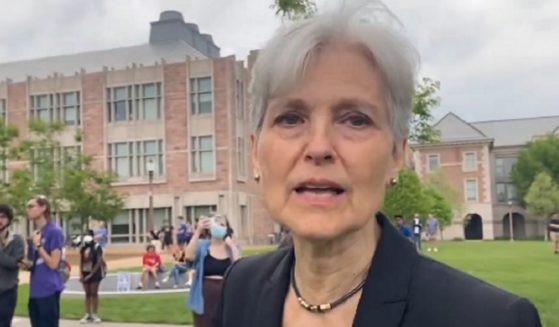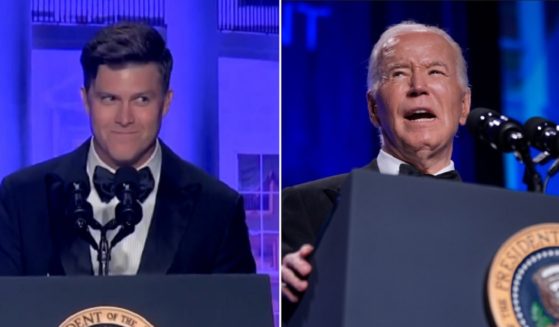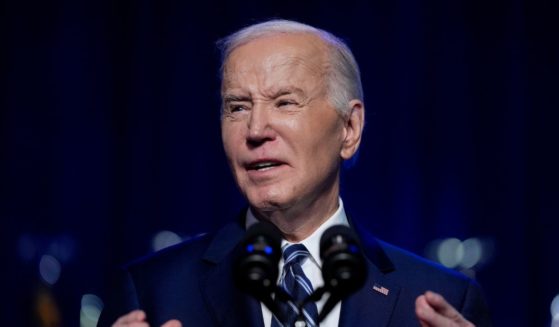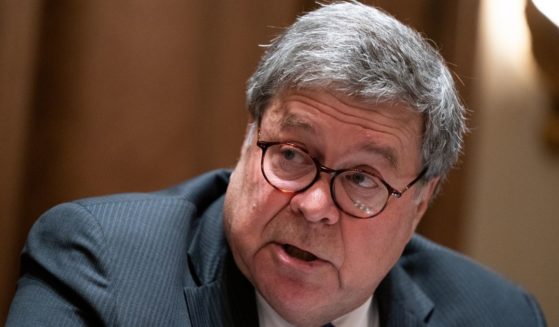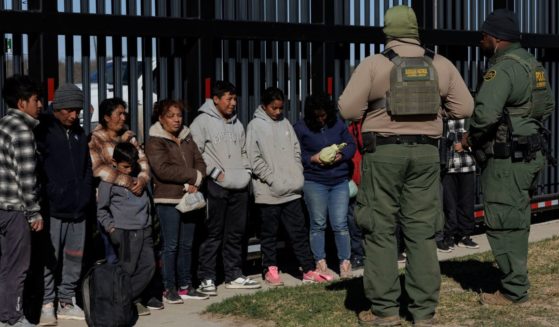Biden Handed Brutal News About RFK Jr. That He Won't Be Able to Compete with on Campaign Trail
The establishment media have tried to portray him as a dangerous demagogue, a peddler of outrageous quack medical and political conspiracy theories that serve as a disinformation node. He’s been labeled a “fringe candidate,” an extremist, a hustler and a fame-chaser cashing in on his family name.
And he’s far more popular than the Democratic president he’s running against — or any other politician in America, according to a new poll.
An Echelon Insights survey conducted June 26-29 among 1,020 likely voters found that Robert F. Kennedy Jr. had a 30-point advantage in net favorability over President Joe Biden.
The survey asked respondents about the favorability of 15 public figures and entities, both political and apolitical, by how favorably they were viewed.
The two most popular figures were entertainers: actor Matthew McConaughey (50 percent net positive favorability) and musician Taylor Swift (27 percent net positive favorability).
In third place, however, was Robert F. Kennedy Jr., with a net 22 percent favorability rating — 46 percent favorable to 24 percent unfavorable.
The rest of the list — except for talk show host Andy Cohen, who came in fifth — were politicians running for president and political parties. Only three politicians were above water in terms of favorability — and perhaps most tellingly, only one has held elected office.
Fourth was GOP dark horse Vivek Ramaswamy, a former corporate CEO who is now the co-founder and executive chairman of an anti-woke asset management group that tries to counteract the influence of ESG (environmental, social, and governance) scores in capital markets. He had a net favorable of 17 points.
Cohen was next with a net favorable of 8 points.
Then we got to the only declared candidate who had a net positive approval rating: GOP Sen. Tim Scott of South Carolina, who had a net favorability of 5 points.
Also tellingly, the bottom four positions were held by the president and vice presidents of the current and former administrations: Kamala Harris (negative 12 percent favorability), Joe Biden (negative 13 percent), Donald Trump (negative 16 percent) and Mike Pence (negative 22 percent).
The survey had a margin of error of 3.9 percent.
These results aren’t as much of a problem for current GOP frontrunner Trump, however, when you consider his main opponent — Florida Gov. Ron DeSantis — is 9 points in the red himself.
For the Biden people, however, it might be time to pull the alarm cord, for two major reasons.
First, as The New York Sun noted, other findings in the survey “reinforce an issue looming in the background of American politics since the last presidential election: that most Americans do not want a rematch between Messrs. Trump and Biden in 2024.” And on paper, of course, Trump is the one with the more credible challengers.
However, that brings us to reason No. 2: The octogenarian president has a looming primary problem entirely of his own making.
Last December, as The New York Times reported, the Democratic Party approved a plan long-championed by the president: moving South Carolina to the top of the primary calendar.
The reason given was that South Carolina’s more ethnically diverse population reflected America more than majority-white Iowa and New Hampshire, traditionally the first two contests held in the nation.
It also didn’t hurt that during his two presidential runs where he made it to the primary-voting stage, Joe Biden had performed miserably in both Iowa and New Hampshire; having South Carolina vote first would discourage potential challengers such as California Gov. Gavin Newsom and Transportation Secretary Pete Buttigieg from jumping into the race.
The problem is that moving South Carolina to the top of the primary calendar is easier said than done.
New Hampshire has a law that stipulates its primary must be held seven days prior to any other state’s, and Granite State lawmakers have shown no inclination to change it.
Iowa lawmakers are also likely to keep their caucuses at an early date, given the complexity of the process and the fact local candidates are also selected at the same go.
Biden has pledged that he’ll contest neither state if it chooses to go first. But that could hand two easy wins to RFK Jr. — and, at the very least, make Biden vulnerable, particularly if those wins are by significant margins over Biden write-ins.
Don’t just ask me, though: Ask the gambling markets, which tend to get things right more frequently than political forecasters.
According to RealClearPolitics aggregate of the betting odds, Biden’s odds to clinch the nomination peaked on April 29 at 79.3 percent. They’ve been on a slow decline ever since — to the point where, as of Thursday, they sat at only 60.8 percent. That’s not stellar for a sitting president.
Ironically, the real winner hasn’t been Kennedy, whose aggregate odds sit at 8.1 percent. Instead, the gains have come from Gavin Newsom, who rose from 5.7 percent when Biden was at his peak in April to 14.4 percent now.
The irony lies in that this is why RFK Jr.’s dad jumped into the 1968 presidential race: In that year’s New Hampshire primary, sitting President Lyndon Johnson was supposed to easily beat what was seen as token opposition to his run by anti-Vietnam War candidate Sen. Eugene McCarthy.
However, LBJ only narrowly escaped losing to the Minnesota senator (at least by what forecasters had predicted would be a rout) by a margin of 48 percent to 42 percent.
Realizing the sitting president was vulnerable, Sen. Robert F. Kennedy jumped into the race shortly thereafter — and by the end of the month, LBJ had announced he wouldn’t be seeking or accepting the Democratic nomination.
A disaster for Biden at the hands of RFK Jr. in the Iowa caucuses and the New Hampshire primary could open the window for Newsom or Buttigieg the same way that McCarthy’s near-upset opened the window for Kennedy’s dad.
Whether things will play out like that is too early to say — and with the modern fundraising apparatuses of presidential runs stretching the campaign cycle over a two-year period, jumping in after the New Hampshire primary isn’t the option it used to be.
Whatever the case, the president has a likability problem — and, despite the fact the establishment media have been desperate to paint him as a nutjob with crazed conjectures about vaccines and WiFi, RFK Jr. does not.
That alone should be keeping the midnight oil burning at 1600 Pennsylvania Ave.
Truth and Accuracy
We are committed to truth and accuracy in all of our journalism. Read our editorial standards.


